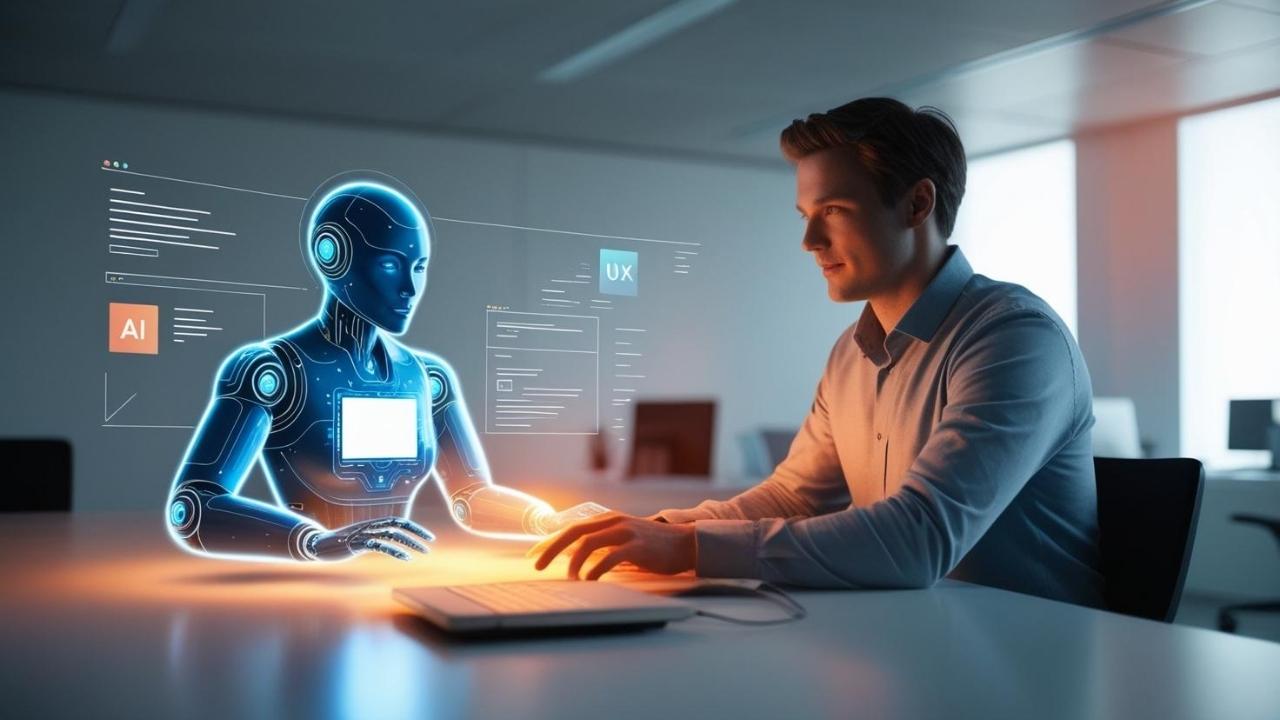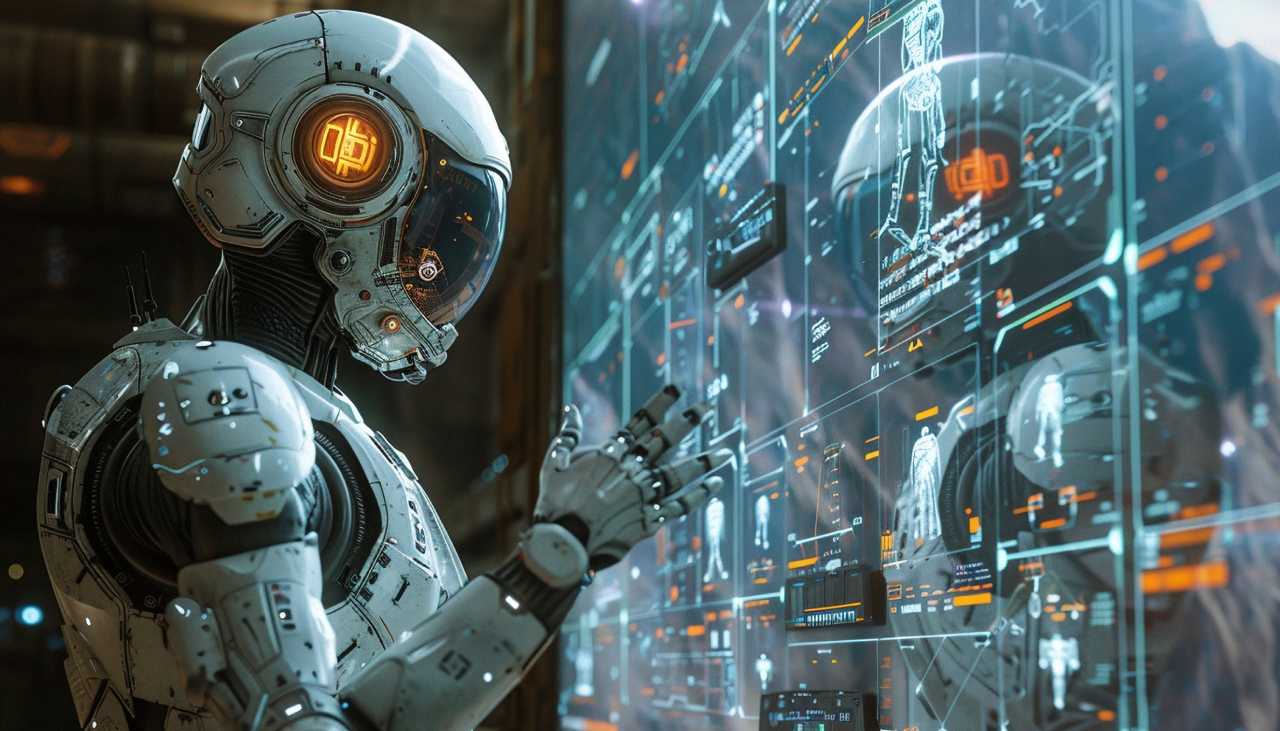Website Development in 2025: The Future-Ready Approach for Startups & Enterprises

Why Website Development Is a Game-Changer in 2025
Did you know that over 80% of consumers research a business online before making a purchase decision? In today’s digital-first world, your website is more than just a digital storefront—it’s the core of your brand, sales funnel, and customer experience. However, traditional websites are no longer enough. The web development landscape is evolving rapidly, driven by AI, automation, and hyper-personalized experiences.
For businesses looking to stay ahead:
Startups need fast, cost-effective solutions that scale as they grow. Enterprises require secure, high-performance platforms with AI-driven automation and personalization. Let’s explore how future-ready websites are changing the game and what startups and enterprises must do to stay competitive.
The Shift from Traditional Websites to AI-Powered Smart Platforms
Web development has come a long way:
- Early 2000s: Static HTML websites with basic content.
- 2010s: CMS platforms (WordPress, Shopify) made web development accessible.
- 2025 & Beyond: AI-driven websites that automate processes, personalize experiences, and self-optimize for better performance.
Websites are no longer passive information hubs—they are smart, interactive, and AI-powered. Businesses that fail to adopt automation and AI-driven strategies will struggle to keep up.
Key Web Development Trends Shaping the Future
1. AI-Powered Websites: The Next Big Thing
AI is revolutionizing web development by enhancing UX, automating content, and improving engagement.
For Startups: AI chatbots handle customer inquiries 24/7, reducing support costs.
For Enterprises: AI analyzes visitor behavior to deliver personalized content and product recommendations.
Example: A SaaS startup integrated an AI chatbot, reducing customer service costs by 50% while increasing conversions by 40%.
2. No-Code & Low-Code Development: Faster & Cost-Effective
For Startups: Tools like Webflow & Bubble allow founders to launch websites without coding knowledge.
For Enterprises: Low-code platforms accelerate development of internal portals, dashboards, and enterprise applications.
Example: A startup launched an MVP landing page in a day using Webflow, compared to weeks of traditional development.
3. Hyper-Personalized User Experiences
Customers now expect tailored interactions—AI makes this possible:
For Startups: Websites adapt dynamically to user behavior, showing custom content for new vs. returning visitors.
For Enterprises: AI-driven personalization boosts engagement, increases conversions, and improves retention.
Example: An eCommerce business uses AI to recommend products, increasing average order value by 25%.
4. Website Automation: Reducing Costs & Boosting Efficiency
- AI-driven automation eliminates manual website management, including:
- Auto-updating SEO strategies.
- AI-generated blog content based on trending topics.
- Smart chatbots managing sales & support queries.
- Automated performance monitoring & updates.
For Startups: Reduces overhead by automating customer engagement, content updates, and lead generation.
For Enterprises: Helps manage high-traffic websites efficiently while optimizing UX & conversions.
5. Enterprise-Grade Security & Performance
As cyber threats grow, businesses must invest in strong security measures:
- AI-powered threat detection & real-time attack prevention.
- Secure authentication, GDPR compliance, and blockchain-based identity verification.
For Startups: SSL encryption, firewalls, and secure payment processing.
For Enterprises: AI-driven cybersecurity to prevent data breaches & secure customer transactions.
Case Studies:
How Businesses Are Winning with Future-Ready Websites
Case Study 1:
AI-Powered Automation Boosts a Startup’s Growth
A SaaS startup integrated an AI chatbot to handle inquiries and generate leads.
- Result: 25% increase in sales conversions.
- Support costs reduced by 50%.
- Improved customer satisfaction due to instant responses.
Case Study 2:
An Enterprise Enhances Engagement with AI-Driven UX
A financial firm redesigned its website with AI-driven personalization.
- Result: 30% higher engagement and reduced bounce rate.
- Improved customer retention through personalized dashboards.
- Increased sign-ups via AI-powered form optimization.
How Startups & Enterprises Can Future-Proof Their Websites
For Startups:
- Use no-code tools for fast, cost-effective website development.
- Integrate AI chatbots & automation to reduce workload.
- Optimize for SEO, mobile-first design & fast loading speeds.
- Choose scalable hosting that supports business growth.
For Enterprises:
- Invest in AI-driven UX personalization.
- Automate SEO, content updates, and performance monitoring.
- Implement enterprise-grade security to protect user data.
- Build data-driven, conversion-optimized platforms.
Conclusion:
The Future of Websites Is AI-Driven & Automated
The web development landscape is evolving faster than ever. AI-powered, automated, and hyper-personalized websites are no longer optional—they’re essential for business success.
- Startups must leverage AI, automation, and no-code tools to launch cost-effective, scalable platforms.
- Enterprises must integrate AI-driven strategies to optimize UX, automate processes, and enhance security.
Is Your Website Future-Ready?
If you’re looking for a website that drives growth, engages users, and adapts to the future, let’s build it together.
For startups: “Need a high-converting website? Let’s make it happen!”
For enterprises: “Want to future-proof your website? Get a consultation today!”
Ready to elevate your online presence? Reach out to Chennai’s #1 web designing company today.
Call us – +917601976099 | Mail us – [email protected]
Websites That Listen: How AI is Making the Internet More Human
Think about the last time you visited a website. Did it greet you with a friendly chatbot? Offer suggestions before you even asked?That’s not magic — it’s Artificial Intelligence (AI) at work. In the past, websites were nothing more than static brochures — good for...
Link in Bio? Why Smart Websites and Social Media Can’t Survive Without Each Other
You’ve probably seen it before: “Check the link in bio!” on Instagram or TikTok. But what does that actually do? In simple terms, it’s a bridge between social media and websites. It’s how influencers, creators, and brands redirect social traffic to a specific...
Why Omnipresence Is the Future of SEO — And How AI Makes It Happen
The digital world is changing faster than ever. What worked for SEO (Search Engine Optimization) a year ago may not be enough today. The future of SEO is no longer about just ranking on Google — it’s about being present across every digital platform your audience...



